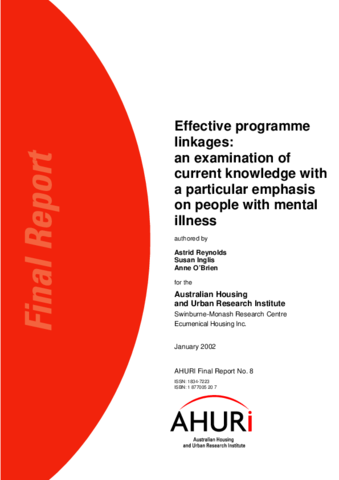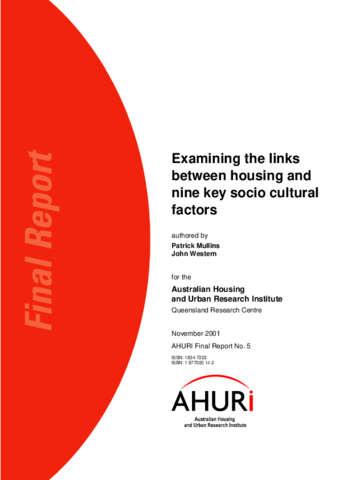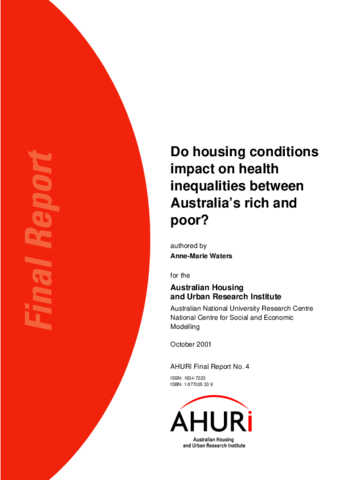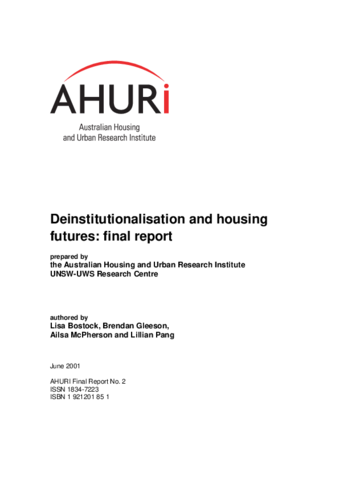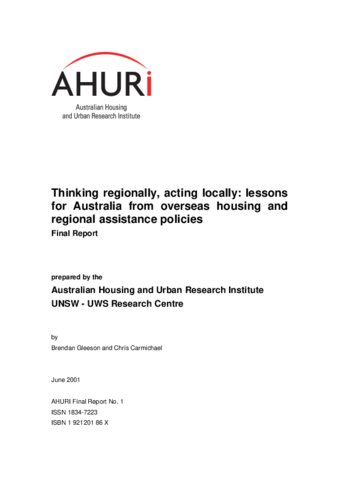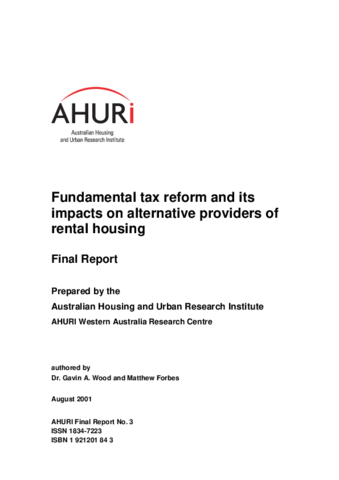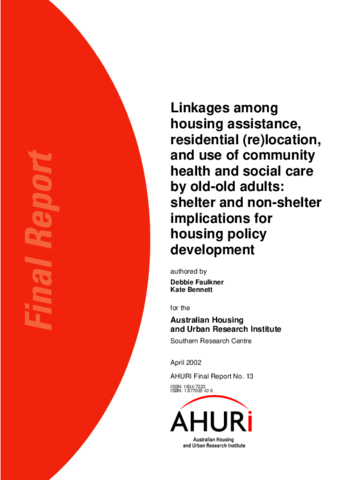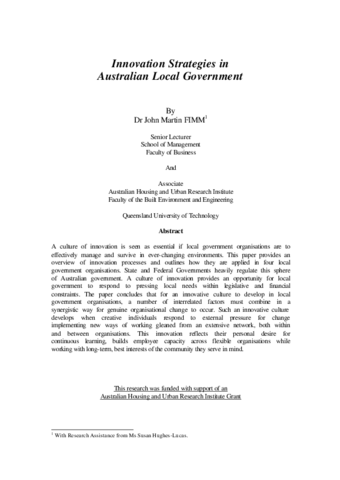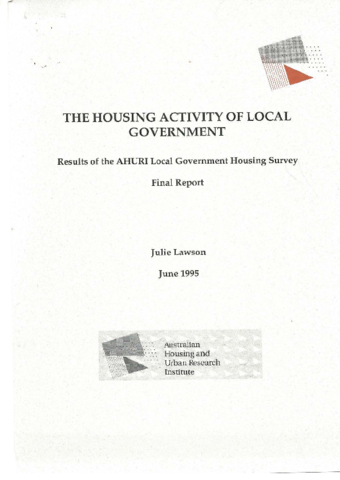
Search
Enter a keyword search term
Search results for
Sort by
Displaying 1381 - 1390 of 1551
Report
1st November 2001
Examining the links between housing and nine key socio cultural factors
view report
Report
1st October 2001
Do housing conditions impact on health inequalities between Australia's rich and poor?
view report
Report
1st January 2001
Fundamental tax reform and its impacts on alternative providers of rental housing
view report
Glossary
view details
Intensification
Residential intensification is the process of increasing the overall number of residential units in a given area. It can involve reusing, expanding, or redeveloping existing buildings, land, or areas. The process of residential intensification should manage the impact that denser development has on existing houses, while optimising the success of the future neighbourhood.

